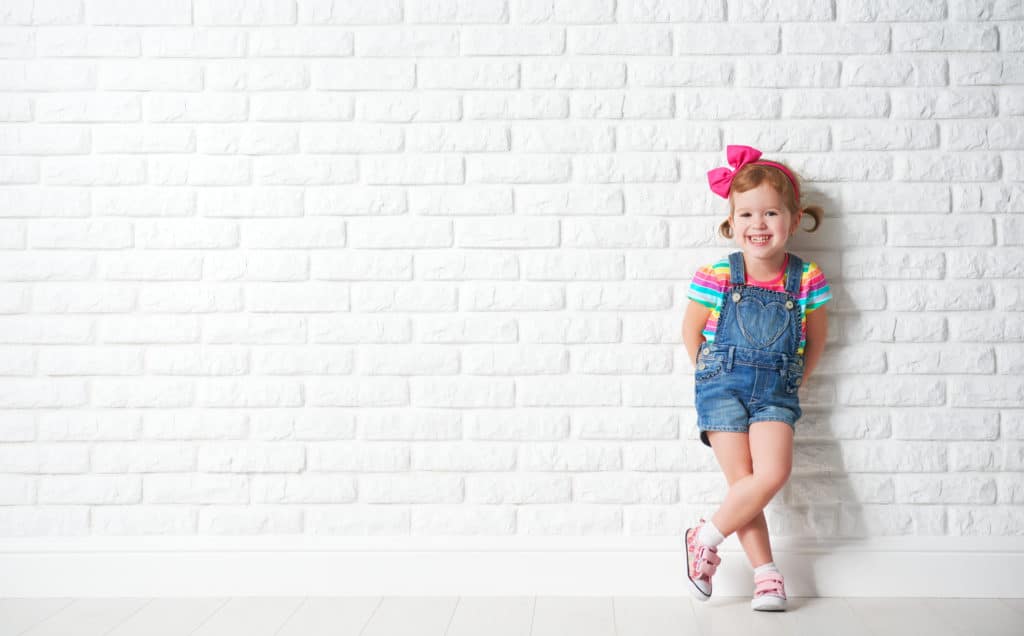Why Modelling Could Be the Answer to Building Your Child’s Confidence

Are you looking for a way to help build your child’s confidence and give them tools that can help now as well as later in life? Child modelling could be the answer.
Why Do Some Children Lack Confidence?
Growing up can be challenging. The people around us – our family, friends and teachers – will all have an influence on how we feel about ourselves. The media in particular plays a huge part in sending both positive and negative messages to us.
Normal, everyday things can affect how we feel, but traumatic experiences like illness or the loss of a loved one can have a hugely negative effect on our self-esteem.
As well as our environment, personality also plays a part in self-confidence. Some people are more prone to thinking negatively. Others struggle to meet the high standards they set for themselves.
The rise of social media also means it’s easy to get into the habit of comparing ourselves to other people. Social media often portrays unrealistic or even false representations of how others live their lives. Negative emotions like jealousy or unworthiness easily stem from these comparisons.
Negativity tends to stay with us far more than positive comments do. If we allow them to, then can manifest and cause even worse feelings to occur that can become deeply embedded over time. Children in particular are prone to absorbing the environmental and social conditions around them. A difficult start in life can affect even the most confident and outgoing child.

Why Can a Lack of Self-Esteem Be Bad?
People who lack self-esteem are generally unhappy because they never feel good enough. They may compare themselves to people around them and feel they don’t “fit in”.
A lack of confidence can also affect how a child performs in school. It could affect how/if they make friends. They may hide from social situations or stop trying new things.
It could also result in them setting themselves impossibly high standards. Some children may look for other areas of their lives that are easier for them to control, such as controlled eating or excessive cleaning, in order to feel like they have some manner of control over how they feel.
A lack of self-confidence for a prolonged period can damage mental health and lead to other issues like anxiety or depression.

How to Help Build Your Child’s Confidence
As a parent or guardian, there are a lot of ways you can help your child to develop their confidence.
Encourage Self-Love
We all find we put ourselves down without realising it – adults are just as guilty of this as children. Thoughts like ‘you’re an idiot’ and ‘you’ll never get it so you might as well give up now’ can easily creep into our subconscious and become ‘normal’ to think. But it’s important we challenge these thoughts and replace them with positivity and self-love.
Get your child to list things that counter the negative thought. For example, if a child says ‘I’m stupid’, help them to list something they are good at (‘I’m good at maths’, ‘I’m good at looking after the pet dog’, ‘I’m good at making people laugh’). Children are often told to see ‘clever’ as doing well in school, but there are many ways children can show their cleverness outside the limited grading system.
If a child is receiving these types of toxic comments in real-life (from a “friend” or school bully), it might be time to step in. Your child should not be around these kinds of people. If it is happening at school, you may wish to speak with the headmaster or head of year to get it resolved.
Inspiration
We all find inspiration a very motivating and uplifting thing. Different things inspire different people in different ways; the key is figuring out what inspires your child. It could be something as simple as their favourite YouTube channel. What seems to excite and evoke positive, energised emotions in your child? Is there a person, either a celebrity or someone in real-life, that appears to uplift them? Find out what gives them inspiration and utilise it.

Getting Out There
It’s important to encourage your child to try new things – even if they fail at them. Fear of failure is a big reason many children become too anxious to try new things. Even the world’s best athletes were starters at some point and would not have been considered experts until many years practicing in their field. “Failure” looks different to everyone, but it’s vital not to be afraid of it or we will never progress.
Knowing It’s OK to Make Mistakes
No one is perfect, even if they appear to be! Social media in particular is a big issue here as it gives children the illusion that people are capable of living error-free lives. Influencers – those making a living via social media – only show selective aspects of their lives. What we see online is not a true reflection of their reality.
It’s important your child understands this so they are not setting themselves an impossibly high bar that they will never reach.
Positive Affirmations
Some children may do well with positive affirmations. Positive affirmations play off the idea that repetition becomes habit. Instead of thinking negative comments, the idea is to is to regularly think positive comments about oneself, thereby manifesting the comments and enabling the brain to believe them over time.
Ever heard the term ‘fake it ‘til you make it’? It’s a bit like that. Here are a few examples of positive affirmations for children:
I am enough.
I am a good person.
I am going to have a great day.
I matter.
Mistakes help me learn and grow.

How Modelling Can Help
Child modelling is a great way to give your child the chance to experience something outside their comfort zone. A professional photoshoot may seem intimidating at first, but they are sure to feel accomplished and excited once they overcome their fears.
Here are all the ways modelling could help your child’s confidence to improve:
- Modelling requires having all eyes on you. This can feel uncomfortable for beginners, but it’s a really great way to learn how to handle attention in a positive way.
- Models need to pose and follow instructions from the photographer. Achieving a certain look and doing well at a photoshoot gives models a feeling of achievement and success.
- Modelling encourages curiosity. It gives them a chance to be creative.
- Practising will enable them to become even better over time. This teaches them a valuable lesson about not giving up.
- It gives them a chance to solve problems themselves, a really great way to build confidence and develop their abilities for the future.
- Your child will be given the opportunity to work with experienced adults in a professional setting. This gives children the chance to be treated and respected like an adult.
- The child’s caregiver will always be nearby to give them a boost (should they need it!)
- They get to take home high-quality, professional photos of themselves that they can look at any time they need a confidence boost.